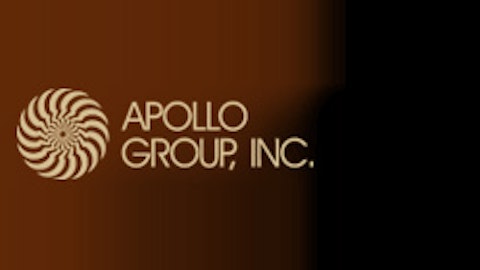
Market-watchers and retail investors are divided over this deal. On the one hand, it provides Empire with a potentially lucrative foothold in fast-growing western Canada and could dramatically shift the balance of power in the Canadian grocery store industry. On the other hand, it is impossible to deny that Empire is paying a substantial premium for these assets. Before jumping into this situation, investors should take a closer look at its financial and strategic implications.
Empire/Sobey’s, Safeway and the competition
For starters, it might be useful to compare Safeway Inc. (NYSE:SWY) against the company to which it is selling the bulk of its Canadian assets. A look at one of Safeway’s main U.S. competitors should provide some added depth. In fact, Safeway and Cincinnati-based The Kroger Co. (NYSE:KR) share plenty in common and are widely regarded as two of the most vital grocery businesses in the country.
Safeway and Empire are fairly close in size. In the wake of the takeover deal, Safeway Inc. (NYSE:SWY)’s market capitalization sits near $5.8 billion. Empire’s valuation fluctuates in a narrow range between $5.2 and $5.3 billion. Meanwhile, The Kroger Co. (NYSE:KR) has a market capitalization of over $18 billion.
These companies’ recent revenue and earnings figures paint a similar picture. With about $370 million in earnings on revenue of $17.4 billion, Empire was narrowly profitable in 2012. Safeway had even narrower margins: Its 2012 earnings of about $600 million on $44.2 billion in gross revenues produced a profit margin of less than 1.5%. With about $1.5 billion in earnings on over $96 billion in revenues, The Kroger Co. (NYSE:KR) posted a similar ratio. Meanwhile, the two U.S.-based firms find themselves dealing with significant and potentially serious leverage loads. At last check, Kroger had $8.9 billion in long-term debt on a cash hoard of under $240 million. With debt of $6.2 billion and cash reserves of about $360 million, Safeway fared only slightly better. Fortunately, the Empire sale will provide it with some much-needed liquidity. On the other hand, Empire’s debt-to-cash ratio is about to grow by leaps and bounds.
How the deal is structured
Under the terms of the deal, Safeway Inc. (NYSE:SWY) will sell its Canadian operations to Empire for $5.8 billion in cash. No stock will be exchanged or distributed as part of the deal. The transaction includes all of the inventory and physical assets of the affected stores as well as the real estate on which they sit. This last part is crucial: According to reliable estimates, the value of the commercial land that Safeway currently owns in Canada could be as high as $2 billion.
Legal issues and potential complications
As is customary, this deal must be cleared by Canada’s Competition Board. Empire rival Metro has expressed its displeasure with the circumstances that surrounded Empire’s offer for Safeway Inc. (NYSE:SWY)s assets: Since Safeway accepted Empire’s unsolicited bid without “shopping” its Canadian assets to other interested parties, Metro missed out on a potential opportunity. However, most observers believe that Metro would have been unwilling or unable to match Empire’s offer. Without a finding of malfeasance or fraud on the part of Safeway Inc. (NYSE:SWY) or Empire, it seems unlikely that either the Competition Board or regional courts will step in to block the deal.





